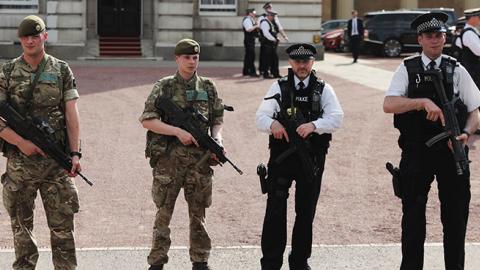As the civilized world mourns the victims of yet another terrorist attack, this time at a concert for teens in Manchester, it is impossible not to recognize the important role that the Internet has in recruiting, training, and organizing terrorists. The Internet is a powerful tool for the forces of good and economic prosperity and for the forces that seek to destroy civilization.
A sensible question is why civilized governments do not seek to deprive terrorists of unfettered access to the Internet. Salman Abedi, the man identified as the terrorist behind the Manchester bombing, was apparently one of more than 3,500 suspected terrorists operating in the United Kingdom. There is no indication that Abedi or any other suspected terrorist had been limited in access to the British Internet.
Sadly, here in America, limiting access to the Internet would be illegal under the euphemistic term “network neutrality,” the two-year-old experiment in federal regulation of the Internet. The concept inspires raw emotion. Hundreds of thousands of comments supporting network neutrality have been submitted to the Federal Communications Commission, including many suggested by comedian John Oliver. Network neutrality advocates have stalked the neighborhood and home of FCC chairman Ajit Pai.
To its supporters, network neutrality is a bulwark of civilization. But network neutrality is also a shield for terrorists who seek to destroy civilization. Here’s why.
Under network neutrality, broadband companies--such as AT&T, Charter, Comcast, Sprint, T-Mobile, and Verizon—are prohibited from discriminating against any lawful websites or content. There is no clear distinction between lawful and unlawful websites and content. The net result is a broadband company could and likely would be sued for blocking websites housing information about recruitment and organization for ISIS, Al Qaeda, the Ku Klux Klan, or other terrorist groups. It is also illegal to block content that instructs viewers on how to manufacture explosives such as nail bombs.
Under network neutrality, a broadband company cannot slow web portals that routinely host terrorist content. It cannot favor websites that meet certain antiterrorist standards. It cannot deny service to likely terrorist organizations or to suspected terrorists such as Abedi or their families.
We need broadband companies on our side, but they are not necessarily eager allies in the war on terrorism. It is easier to offer service to all, and let someone else worry about how the Internet may be used. During the implementation of the Patriot Act more than 10 years ago, some companies were actively hostile to cooperating with the federal government, not because they loved terrorists but because they did not want to be sued for helping the federal government. The legal liability under network neutrality rules today is much more certain than it was 10 years.















